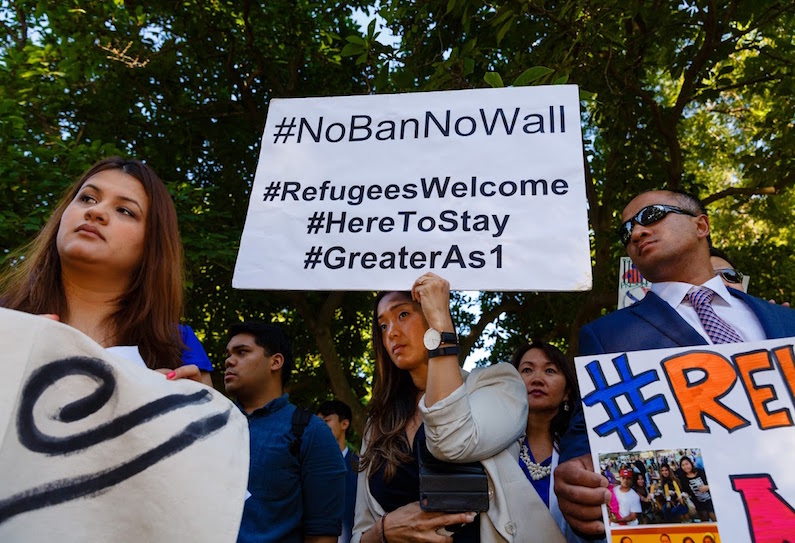November 27, 2017 IN: Immigration, National, Press Room
California Public Officials Denounce Southeast Asian American Roundups and Detentions

FOR IMMEDIATE RELEASE
November 27, 2017
Contact:
Katrina Dizon Mariategue, Immigration Policy Manager
katrina@searac.org, 202-601-2968
California Public Officials Denounce Southeast Asian American Roundups and Detentions
Federal, State, and Local Representatives Urge the Trump Administration to Release Recently Detained Cambodian and Vietnamese Refugees
Washington, DC – Federal, state, and local elected officials from California are publicly denouncing the unprecedented roundups and detentions of Cambodian and Vietnamese American refugees and community members. The roundups escalated in October, following threats by the Trump Administration to take aggressive action to deport immigrants with old criminal convictions. The majority of those impacted by these roundups are from California.
- Congressman Alan Lowenthal (CA-47) sent a letter to the Department of Homeland Security and the White House demanding the release of Cambodian and Vietnamese detainees, signed by Reps. Judy Chu (CA-27), Lou Correa (CA-46), Rho Khanna (CA-17), Ted Lieu (CA-33), and Zoe Lofgren (CA-19). The letter expresses concern that families impacted by the raids may be “political pawns” as the United States works to settle diplomatic disputes with Vietnam and Cambodia, leading to “terror and trauma” for refugee families.
- The California Asian & Pacific Islander (API) Legislative Caucus issued a statement addressed to Acting Homeland Security Secretary Elaine Duke to express concern about the nature of these detentions, stating reports from family members that their loved ones were “abruptly detained, sent to other states, and that their whereabouts are unknown to families for days or even weeks.”
- Los Angeles County Supervisor Janice Hahn expressed similar concerns that long-time “gainfully employed, civically engaged” community members had been swept up suddenly and without warning.
Most of the detainees came to the U.S. in the aftermath of the Vietnam War and the Khmer Rouge-orchestrated genocide in Cambodia. Many were born in refugee camps and came to the U.S. as young children. They were resettled in blighted urban centers and lived in poverty, with parents reeling from the trauma of war. For various reasons, they succumbed to their environments and made mistakes that funneled them into the criminal justice system. They did not know that incarceration could lead to automatic deportation.
All of them completed their sentences and were released. Because agreements between the U.S. and Southeast Asian countries delayed their deportations, many have been checking in with ICE for years, transforming their lives and supporting their families. Now they face sudden deportation to countries where they have no ties, and where they may not even speak the local language fluently.
In September, the U.S. issued visa sanctions on Cambodia for delaying the repatriation of refugees. The U.S. is also reportedly pressuring Vietnam to accept more deportees – even those currently barred from repatriation by a 2008 agreement between Vietnam and the U.S.
“We applaud these public officials from California for standing up for the Southeast Asian American community,” said Quyen Dinh, executive director of SEARAC. “We need more leaders across the country to follow their lead in denouncing the roundups. But we also need Congressional leadership to take the next step: reform outdated, unjust policies that have resulted in the senseless separation of our refugee families for far too long.”
###
Take Action for Cambodian and Vietnamese American families
Sign on to these petitions calling for the release of detainees and an end to the deportation of refugees to Cambodia and Vietnam:





